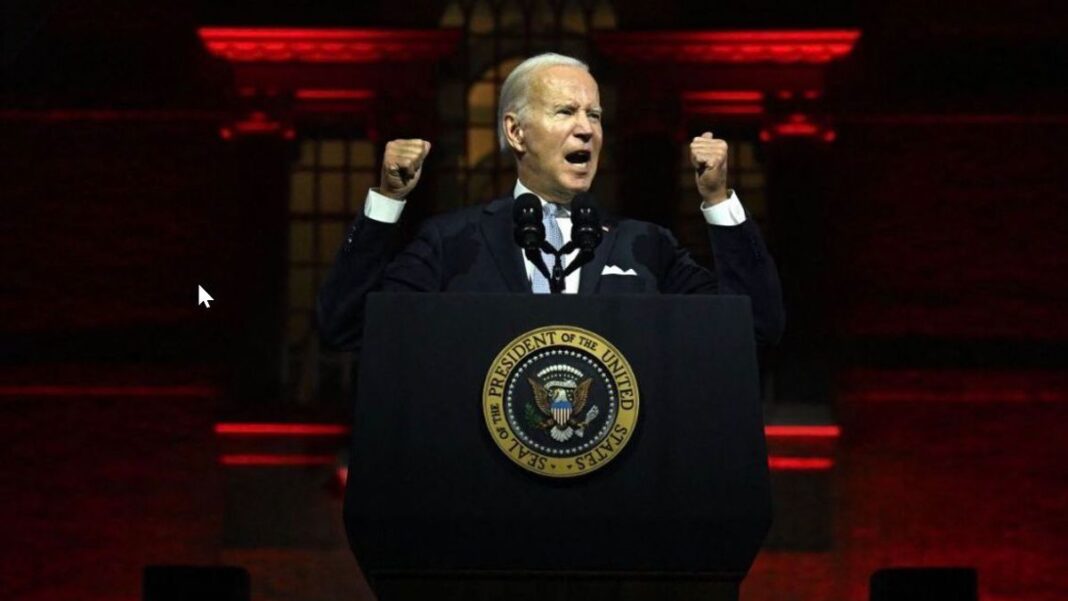Congress must reduce the rate of growth of spending and reduce the rate of growth of debt accumulation if it wants to stop inflation, proves Sen. John Kennedy, while grilling Fed Chair Jerome Powell during Senate hearing.
Transcript
Sen. John Kennedy: Thank you, Mr. Chairman. Chairman Powell, thank you for being here. Thank you for to you and your team for helping to save the economy during the pandemic meltdown. For what it’s worth I’m generally supportive of the actions of the FED right now, and I’m not going to ask you that today to blame anybody. When Congress spends money it stimulates the economy does it not?
Chair Jerome Powell: Well, it would depend on whether that’s funded by tax increases or not, but so, if there’s a spending that’s, that’s not accompanied by taxes would have a net at the margin stimulative effect.
Sen. John Kennedy: Well, and when Congress borrows money to spend even more, that stimulates the economy even more does it not?
Chair Jerome Powell: At the margin yeah.
Sen. John Kennedy: Okay. If Congress reduced the rate of growth in its spending, and reduced the rate of growth in its debt accumulation, it would make your job easier and reducing inflation, would it not?
Chair Jerome Powell: I don’t think fiscal policy right now is a big factor driving inflation at this moment, but it’s absolutely essential that we do slow the pace of growth, particularly for the areas of the budget that are right.
Sen. John Kennedy: Alright, let’s try to unpack this then. I’m not trying to trick you. You’re raising interest rates, you’re raising interest rates to slow the economy are you not?
Chair Jerome Powell: Yes, to cool the economy off.
Sen. John Kennedy: And one of the ways you measure your success, other than fluctuation and gross domestic product, is the unemployment rate, is it not?
Chair Jerome Powell: Yes, one of the measures.
Sen. John Kennedy: Okay, so in effect, I’m not being critical, when you’re slowing the economy, you’re trying to put people out of work, that’s your job, is it not?
Chair Jerome Powell: Not really, we’re trying to, we’re trying to restore price stability not wages.
Sen. John Kennedy: No, your trying to raise the unemployment rate and that, and that, I know you don’t like the phrase so let me strike it, your trying to raise the unemployment rate are you not?
Chair Jerome Powell: No, we’re not trying to raise it. We’re trying to realign supply and demand, which could happen through a bunch of channels, like, for example, you know, just job openings, job openings could.
Sen. John Kennedy: Okay, let me put it another way, okay. “The Economist” did a wonderful study. They looked at 10 disinflationary periods in America going all the way back to the 1950s. Disinflation is what you’re trying to do. it’s a slowing in the rate of inflation, am I right?
Chair Jerome Powell: Yes.
Sen. John Kennedy: In other words prices don’t go down, they just don’t go up as fast. Deflation is when prices actually go down. You’re trying to achieve disinflation, are you not?
Chair Jerome Powell: Yes we are.
Sen. John Kennedy: Okay. Based on history, in the 10 times that we got inflation down, disinflation, since the 1950s, in order to reduce inflation by 2%, unemployment had to go up 3.6%, now that’s history, is it not?
Chair Jerome Powell: I don’t have the numbers in front of me but, yes, the standard has been that there have been recessions and downturns when the Fed has tried to reduce inflation.
Sen. John Kennedy: Okay, now, right now, the current inflation rate 6.4% and the current unemployment rate is 3.4%. Now if history is right, I’m not asking you to again blame anybody, but if history is right, unless you get some help, in order to get inflation down from 6.4% to, let’s say 4.4%, the unemployment rate is going to have to rise 7%, based on history.
Chair Jerome Powell: That’s what the record would say.
Sen. John Kennedy: Okay, and to get inflation down to 2.2%, based on history, and immutable fact, unemployment would have to go to 10.6%, would it not?
Chair Jerome Powell: I wouldn’t, I wouldn’t a . . .
Sen. John Kennedy: That’s what the record shows.
Chair Jerome Powell: Yeah, yeah I don’t think that kind of a number is at all in play here.
Sen. John Kennedy: I know you’re reluctant to admit it, and you don’t want to get in the middle of a policy dispute. But I think it’s undeniable, it’s undeniable that the only way we’re going to get this sticky inflation down is to attack it on the monetary side, which you’re doing, and on the fiscal side. Which means Congress has got to reduce the rate of growth of spending and reduce the rate of growth of debt accumulation. Now, I get that you don’t want to get in the middle of that fight, but the more we help on the fiscal side the fewer people you’re going to have to put out of work, isn’t that a fact?
Chairman: Please answer.
Chair Jerome Powell: It could work out that way.
Sen. John Kennedy: Sir?
Chair Jerome Powell: It could work out that way.
Sen. John Kennedy: Yes, sir, thank you.







